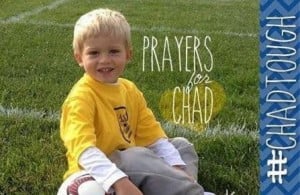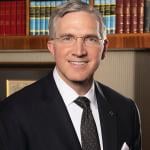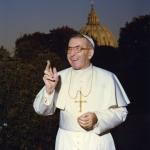A year after Steve Jobs’ untimely death in October 2011, and as the feast of All Souls nears, I’ve been thinking about How We Die.
* * * * *
 You remember Art Buchwald: He was an American political satirist and commentator best known for his long-running syndicated column, which originated at The Washington Post. In 1982 he was awarded the Pulitzer Prize for Outstanding Commentary, and in 1986 he was elected to the American Academy and Institute of Arts and Letters.
You remember Art Buchwald: He was an American political satirist and commentator best known for his long-running syndicated column, which originated at The Washington Post. In 1982 he was awarded the Pulitzer Prize for Outstanding Commentary, and in 1986 he was elected to the American Academy and Institute of Arts and Letters.
Buchwald was a crusty guy who dropped out of high school, ran away from home, then lied about his age to enter the Marine Corps during World War II—bribing a drunk with half a pint of whiskey to sign as his legal guardian. After the war he attended the University of Southern California in Los Angeles, becoming managing editor of the campus magazine Wampus and writing a column for the school newspaper, the Daily Trojan; but the college, on learning that he’d never graduated from high school, refused to award him a degree. Buchwald’s hijinks, at home and abroad in Paris, continued to earn him a spotlight; and his column was nationally syndicated in 1962.
Buchwald suffered a stroke in 2000, at the age of 74, and was hospitalized for over two months. Then in February 2006, he had a leg amputated below the knee due to poor circulation. Shortly after that, he revealed his decision to discontinue hemodialysis, which was made necessary by renal failure due to diabetes. “If you have to go, the way you go is a big deal,” he explained, indulging his penchant for McDonald’s hamburgers over health foods.
Buchwald seemed to have cheated death once again. He said, in an interview with Diane Rehm, that his kidney had begun working again. “I bless him every morning,” he said. “Some people bless their hearts; I bless my kidney.” But the reprieve was short-lived; Buchwald died on January 17, 2007. The next day, the New York Times posted a video obituary on their website in which Buchwald himself declared: “Hi. I’m Art Buchwald, and I just died.”
* * * * *
In reading about Buchwald’s passing, I couldn’t help but chuckle at his wry approach to what would be his Last Days; but it was sad, too—Buchwald’s closing of the book of his life, the inference by absence. Nothing in the news reports, in his radio and television interviews, in the syndicated columns which continued until his death, pointed to any sort of faith in God, or in an after-life. In Buchwald’s mind, it appeared, death was a robber that would end all the fun, all the shenanigans, all of everything.
* * * * *
 So along came Steve Jobs, who died on October 5, 2011, at the age of 56 after an eight-year battle with pancreatic cancer. In his official biography, built on long conversations between Jobs and the author, Walter Isaacson, Jobs said that there is “about a 50-50 chance” that God exists. He abandoned Christianity when he was only 13, after seeing a photo of starving children on the cover of Life magazine. “Do you think God knows what will happen to them?” he asked his Sunday school teacher. Perceiving a heartless God that did not intervene to help the needy, Jobs never went back to church.
So along came Steve Jobs, who died on October 5, 2011, at the age of 56 after an eight-year battle with pancreatic cancer. In his official biography, built on long conversations between Jobs and the author, Walter Isaacson, Jobs said that there is “about a 50-50 chance” that God exists. He abandoned Christianity when he was only 13, after seeing a photo of starving children on the cover of Life magazine. “Do you think God knows what will happen to them?” he asked his Sunday school teacher. Perceiving a heartless God that did not intervene to help the needy, Jobs never went back to church.
Later in life, Jobs studied Zen Buddhism, and he and his wife were married in a Buddhist ceremony. But the profuse praise Jobs received from commentators and executives focused, as Jobs himself did, on his success in the world of computers and technology.
The creator and innovator who held 342 patents had apparently never returned to a confident faith in a Creator and Innovator Who willed the universe into being.
* * * * *
These two life stories, especially their prosaic endings, leave me saddened. I felt the same way when an old college professor of mine, a Unitarian Universalist and a secular humanist, died of a heart attack.
Just what happens, I’ve wondered, when a person with no faith meets the Person he’s ignored throughout his lifetime? Does a merciful God say, “Hi! I’m God! Let me show you around!” Or has the deceased person really ignored countless opportunities to encounter Him during life, and is that poor soul now relegated to an eternity outside the gates of glory? I don’t know.
When I die—and I hope am permitted to know when that day is coming—I pray that I have the grace to do it differently. I hope that I am able to speak from the heart to the people I love, to atone for my many mistakes, to assure them of my constant love, to promise them my continued prayers.
I hope that I will have the grace to refocus my attention, which is frequently diverted by one futile project or another, to God and to the things that matter most. I hope I can spend my last days in prayer, in meditation, in preparation to take the next exciting step. I hope that I have the sense to leave my work behind, to face eternity unencumbered, and to step freely into the arms of a loving God.














